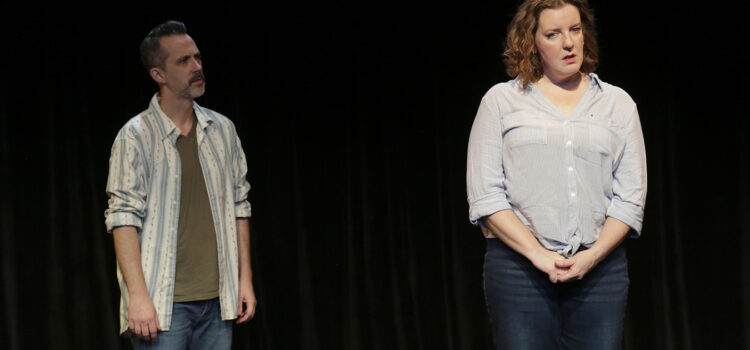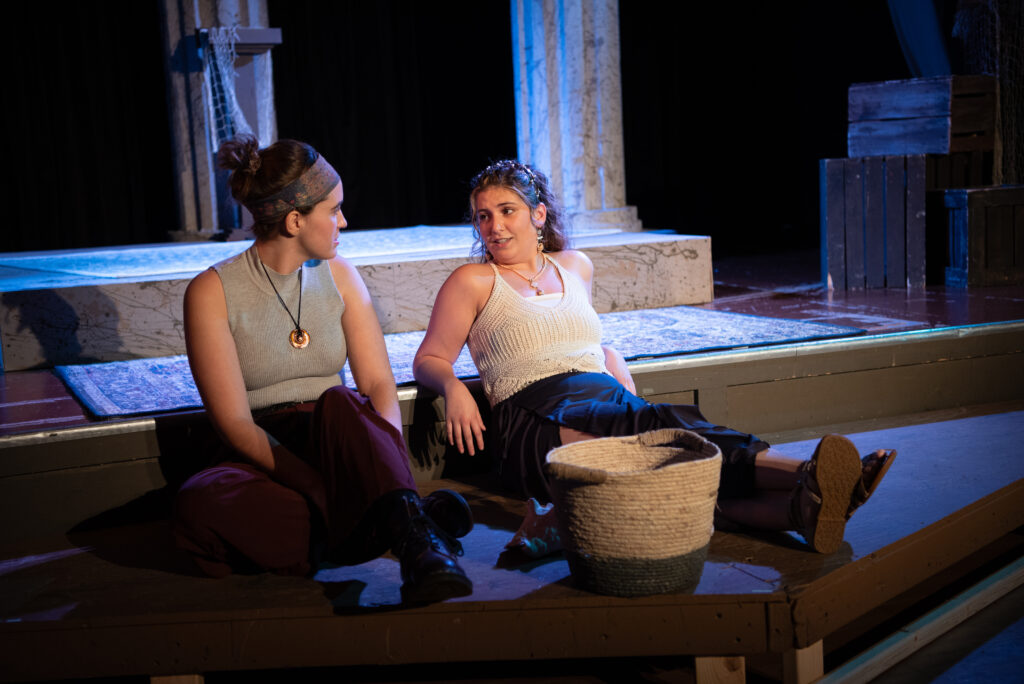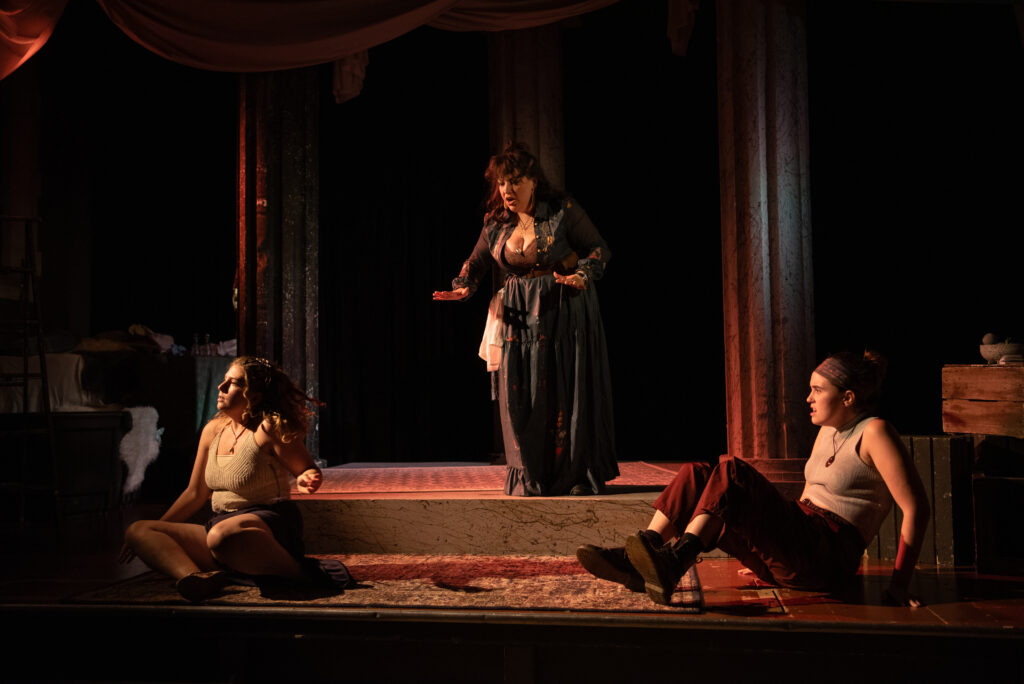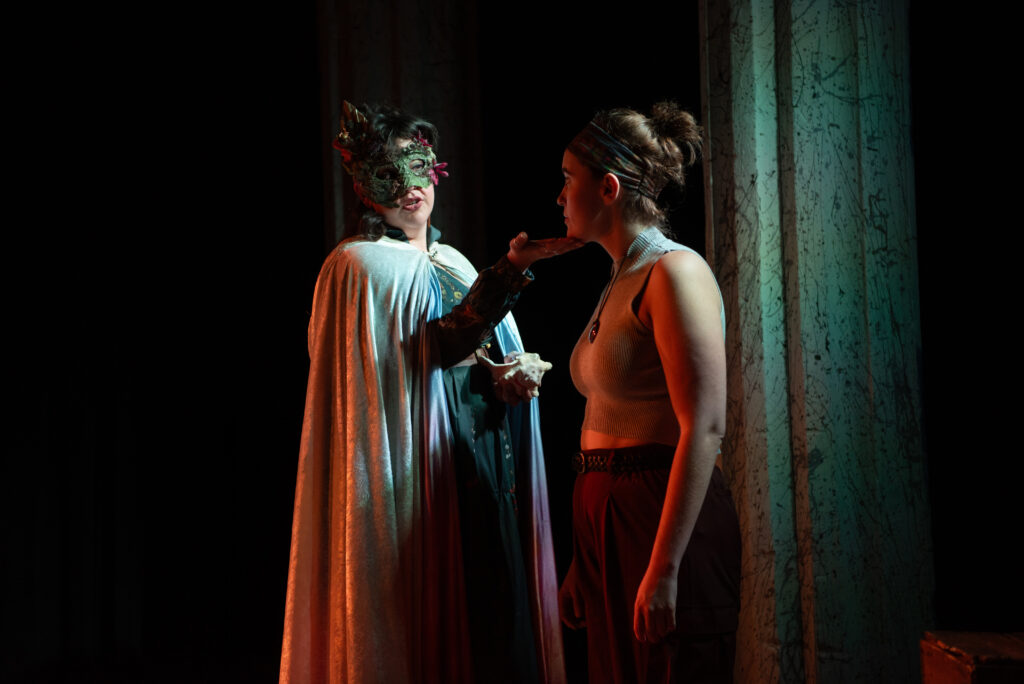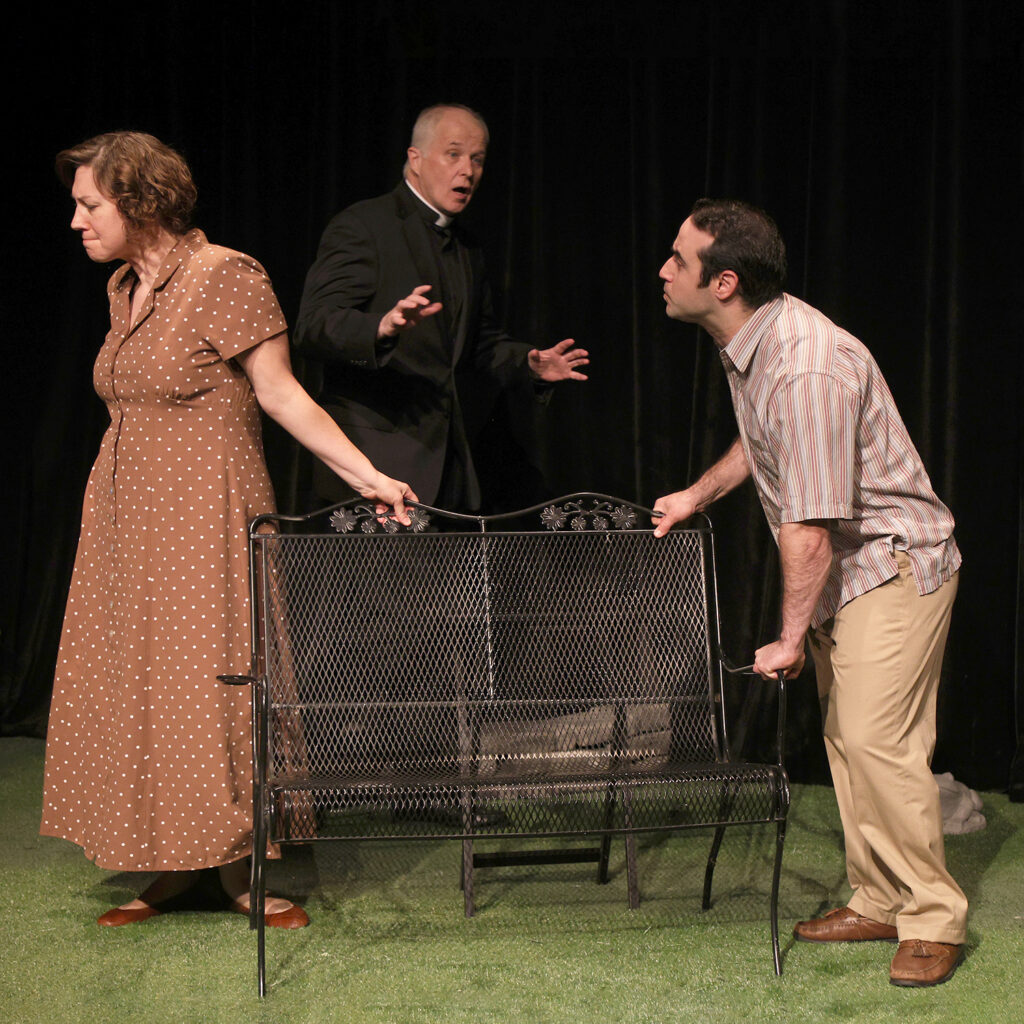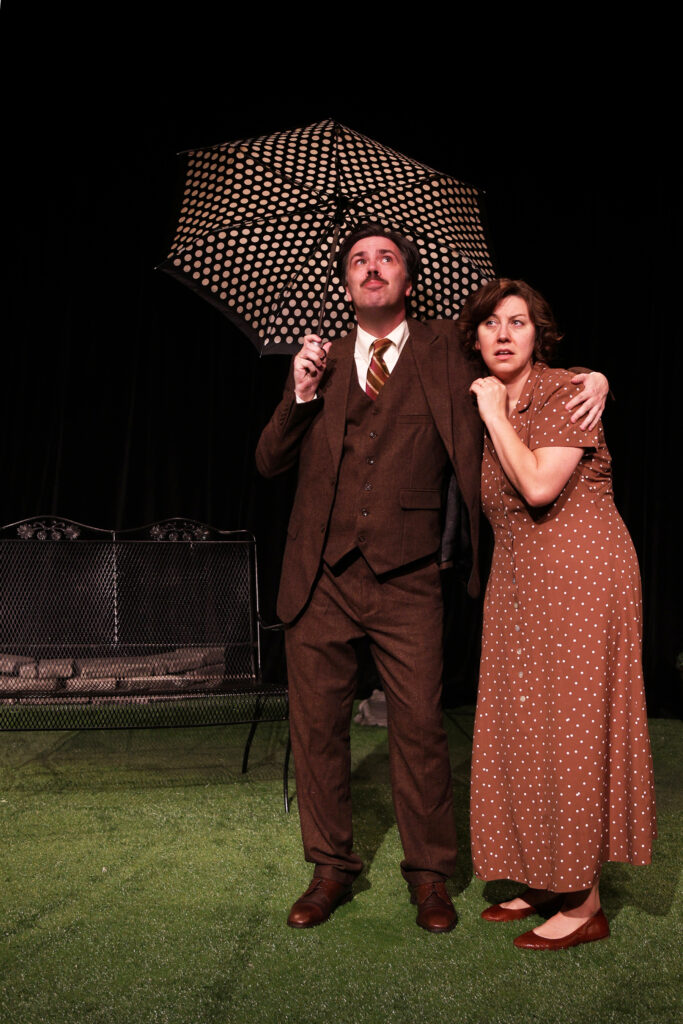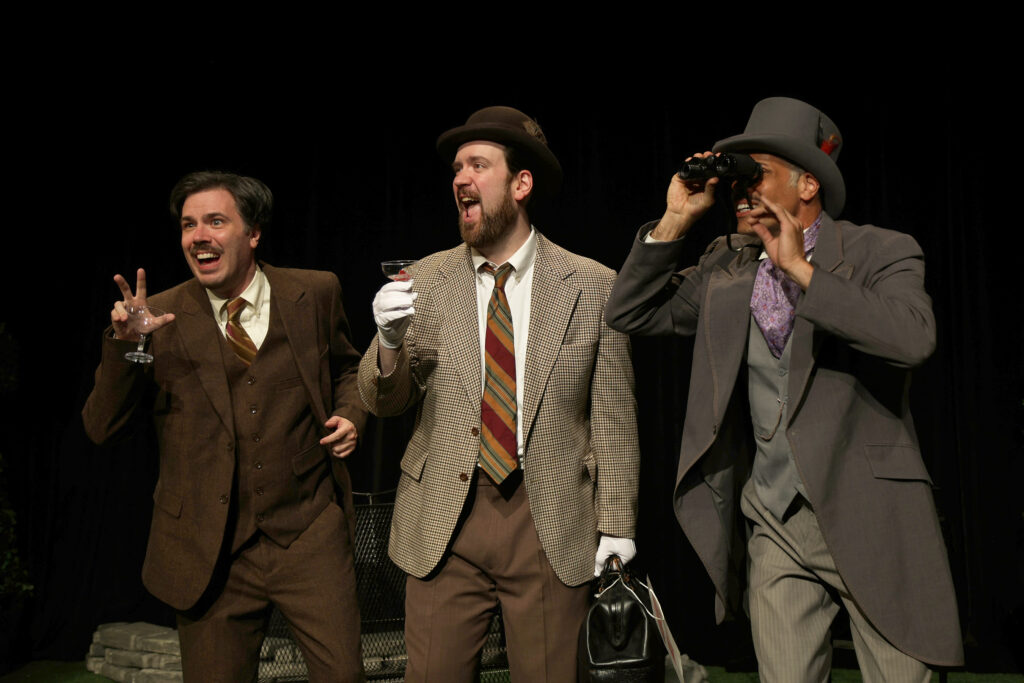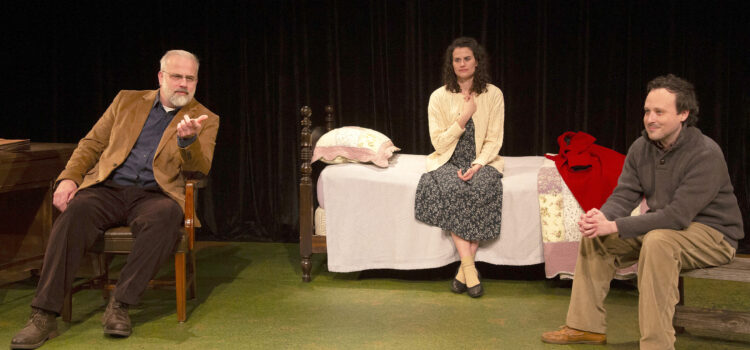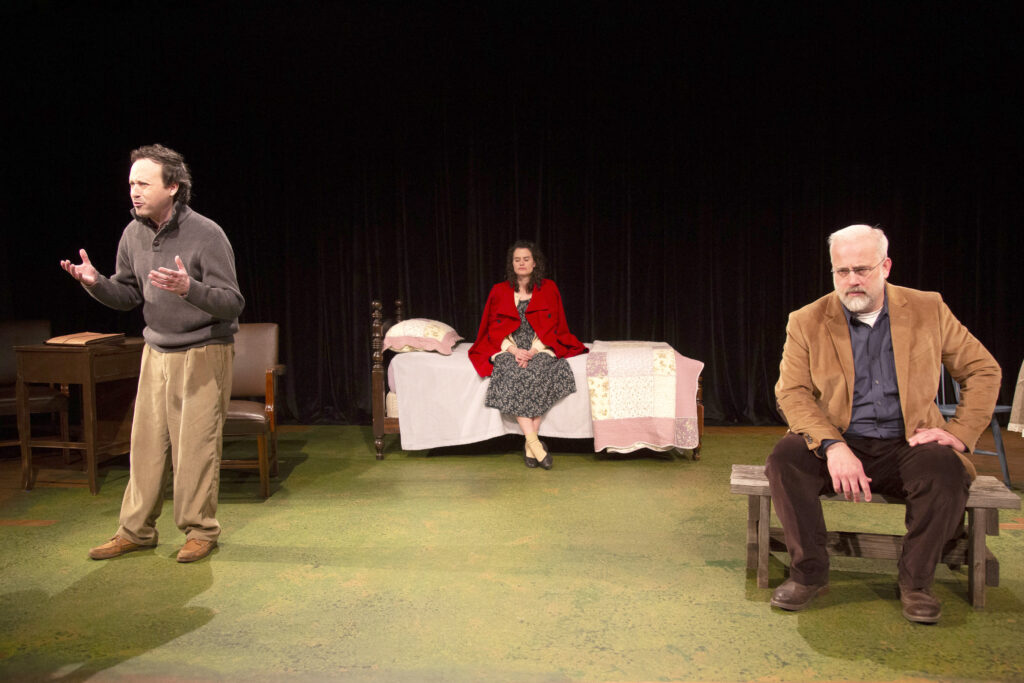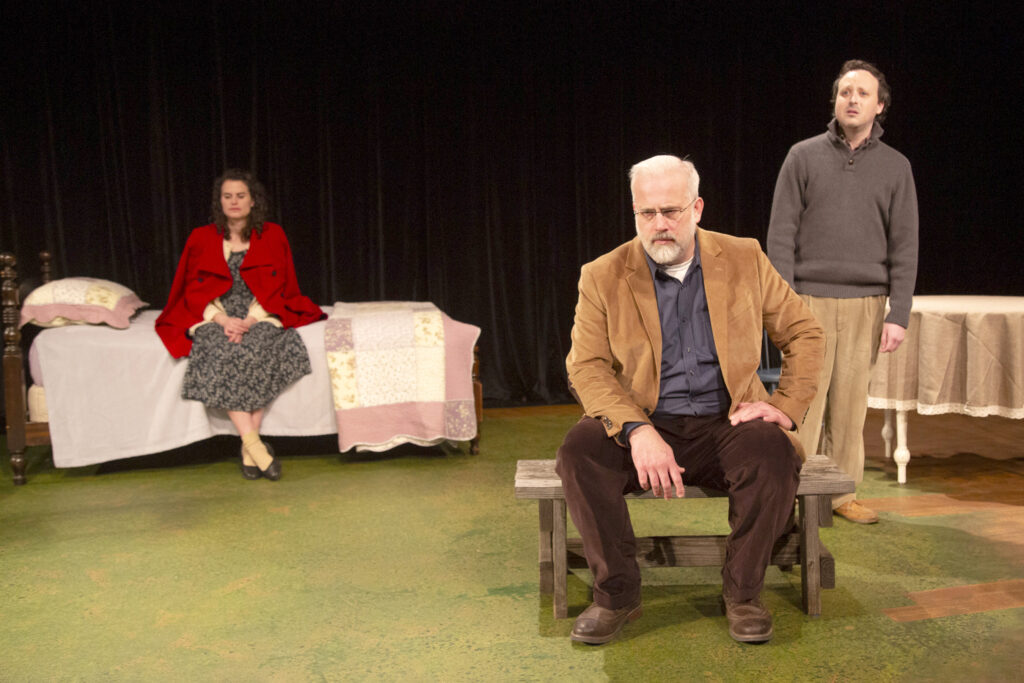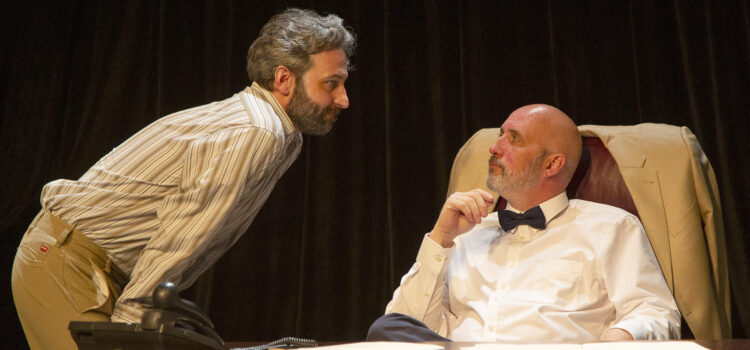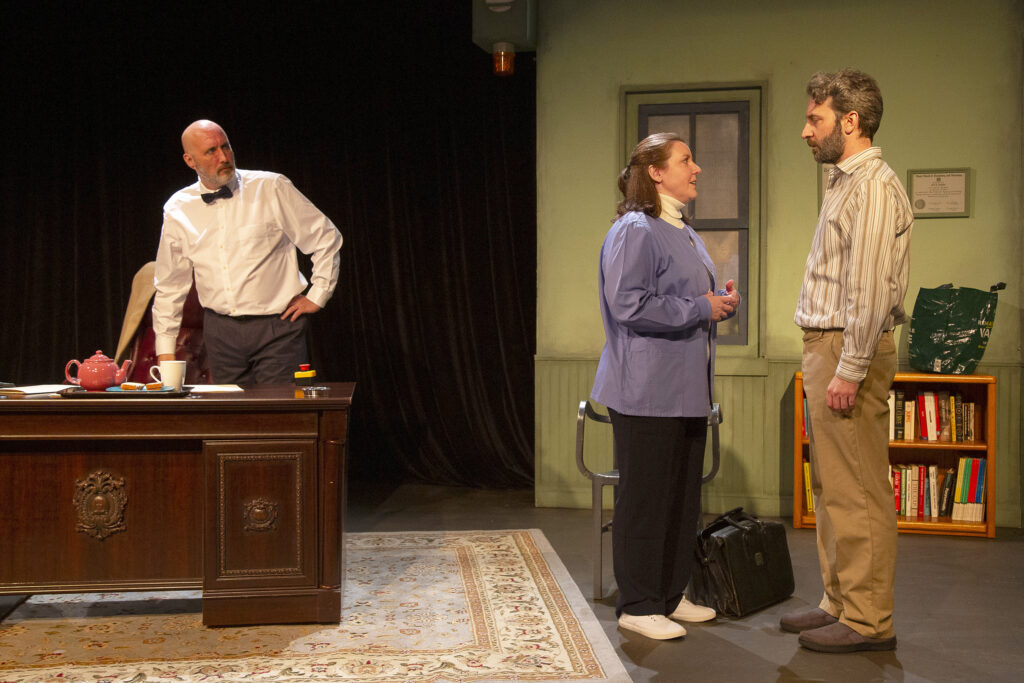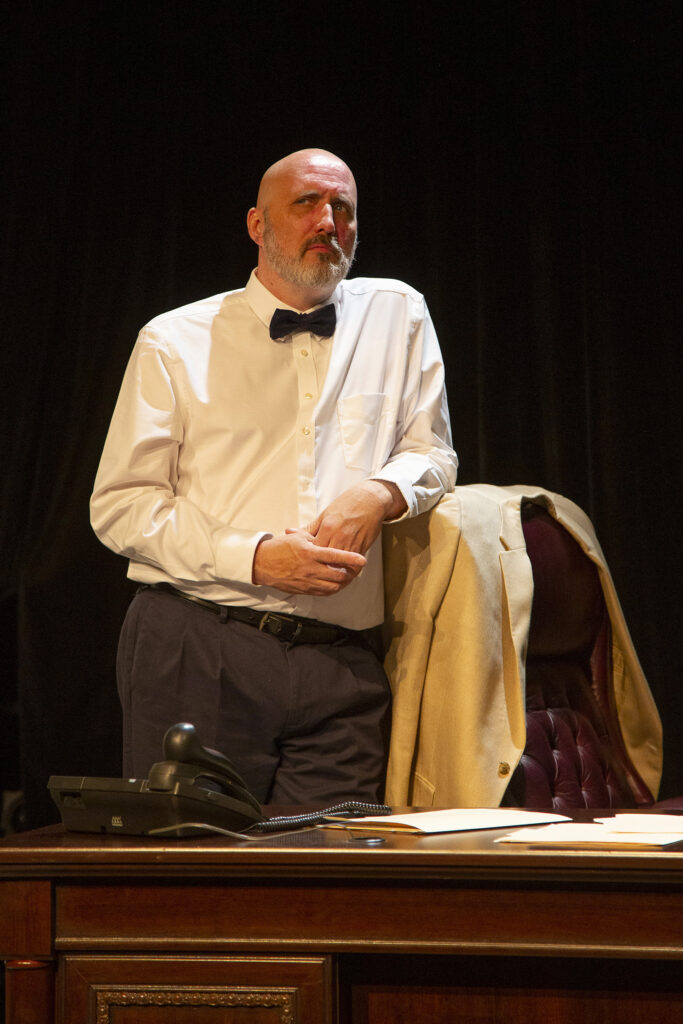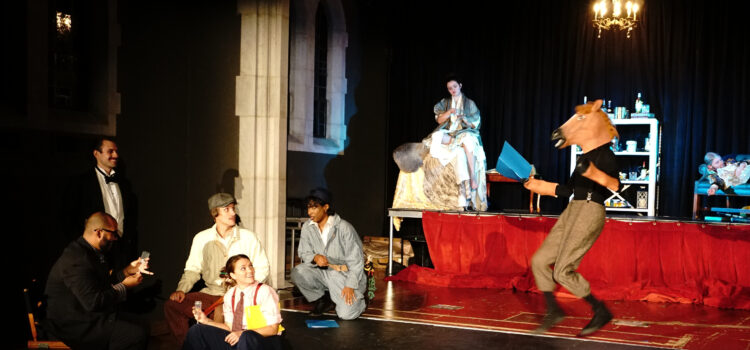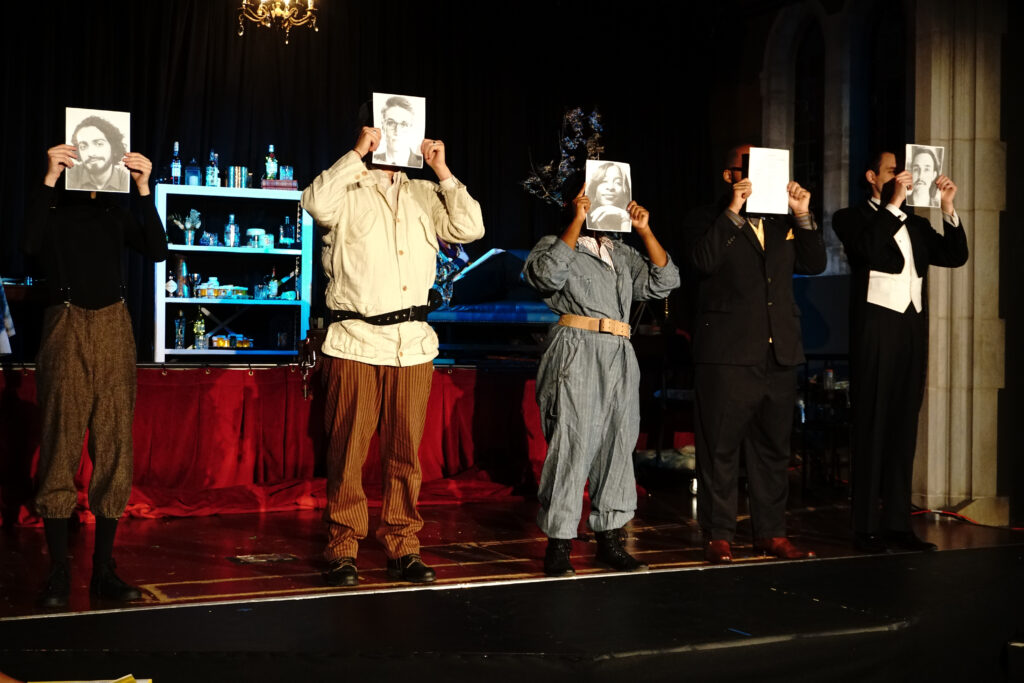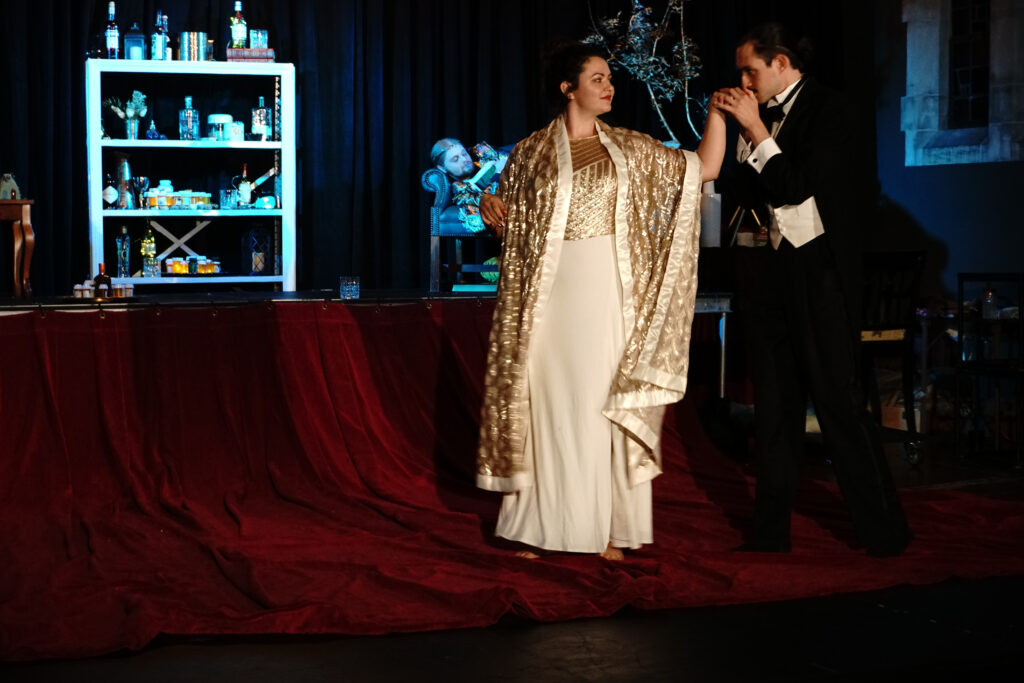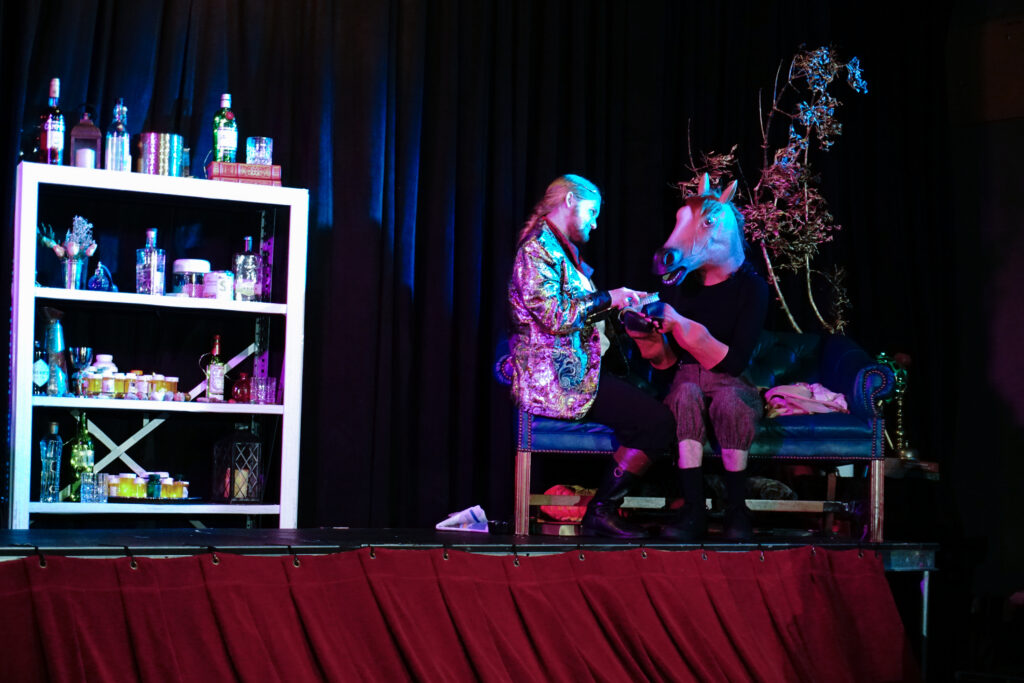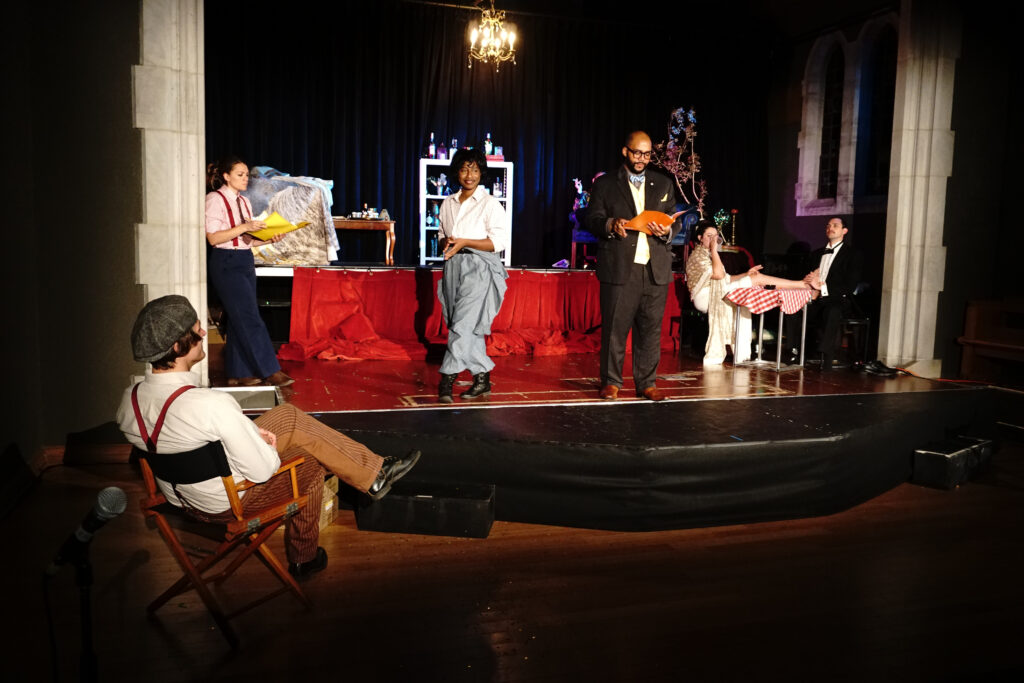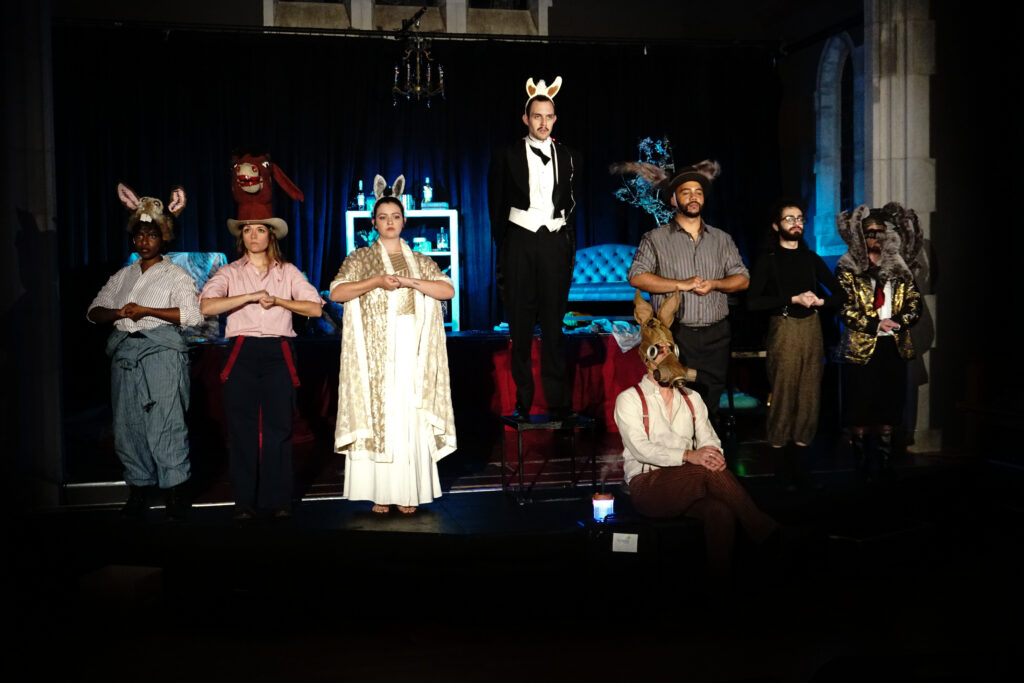By Lynn Venhaus
With its emotionally rich storytelling, “Lungs” demands much from Joel Moses and Nicole Angeli, who fearlessly tackle those challenges in their finely chiseled performances as M and W.
As a couple linked through many years, the pair have seamlessly plumbed the depths of human nature to expose raw nerves, painful truths and tender intimacy. They start out as young lovers – enlightened, independent thinkers — figuring out their life together and separately, then acquire experiences and perspective, increasingly uncertain of tomorrow.
Because of their fluent reactions to developing relationship situations, you hang on to every twist and hairpin turn of daily living in this offbeat, unconventional drama that is laced with humor – and just may elicit a tear or two.
Under director Ellie Schwetye’s shrewd guidance, the duo has created such a level of comfort that it appears to unfold spontaneously, in real time. Their mental acuity, verbal dexterity, and agile physicality is astonishing, as is Schwetye’s modulated pacing.
Angeli and Moses are on stage the entire time, being honest and open, overthinking their lives as developing people on a planet in crisis. They reveal their flaws as they personify their genders – as they interpret the assignment. She’s more neurotic, but also empowered; he’s more even keel, but willing to adjust and can jump in, then deal with consequences. And you never doubt their sincerity.
Duncan Macmillan’s thoroughly relatable two-hander play confronts making grown-up decisions that change your life’s trajectory — the small moments and the big milestones, the planned and the unplanned.
A recurring theme concerns current global environmental and climate changes underway. With such issues as carbon footprints, depletion of natural resources, and overpopulation being real dilemmas, M and W debate bringing children into the modern world. Is it reckless, risky or responsible – and are they ready?
The setting is various locations in the south of England, over a period of many years. Macmillan’s not so much obsessed with pollution as he is focused on communication as citizens of the world and our place in it.
The sagacious Albion Theatre is closing out its second full season with this penetrating production after entering the regional professional theater scene in 2022. Its mission is to present British playwrights (with forays into other United Kingdom territories and Ireland), mainly highlighting social, political and cultural influences.
This is their most contemporary effort to date. A Gen X’er, Macmillan was born in England.
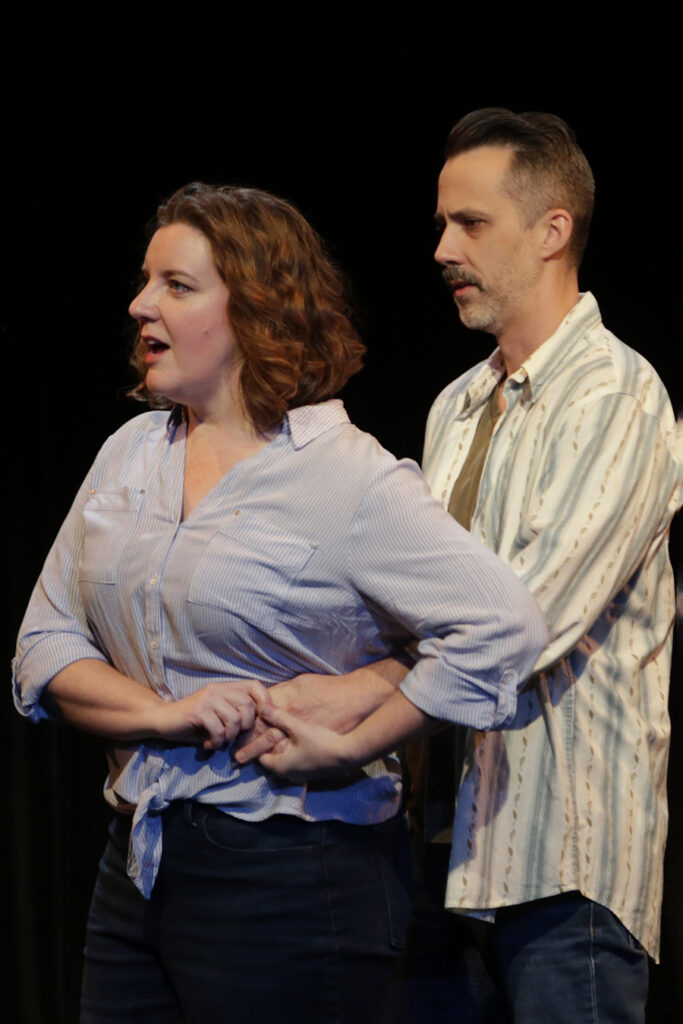
Schwetye has minimally staged this 105-minute play without intermission, using Erik Kuhn’s bare set design that features two sloping slabs and a stationary middle. Her crisp sound design and Tony Anselmo’s natural lighting design keep that aesthetic, as does one casual costume design each by Tracey Newcomb. CJ Langdon did double duty as assistant director and stage manager.
The actors, both St. Louis Theater Circle Award winners, color in the rest – their ages, places and times in the ebb and flow of their lives. W is a Ph.D. grad student; M is a musician when they’re introduced in a ‘queue’ at Ikea. The team seasoned the material well, emphasizing the beats of Macmillan’s on-the-nose prose for optimum effect.
Macmillan’s 2013 play, ‘Every Brilliant Thing,” is in the same lane as “Lungs,” examining the complexities of modern living. It’s been staged several times in St. Louis, including a production Schwetye directed for New Jewish Theatre in spring 2023. The playwright is exceptionally articulate about being human, fretful and striving for goodness.
This match-up feels like five sets of championship tennis on Wimbledon’s Centre Court. Surely the intensity would exhaust both actors, but they seem invigorated. By the time Angeli and Moses bittersweetly wrap up this story, the audience has been through a tsunami of ‘feels,’ and all earned.
“Lungs” is not injected with any artificial sweeteners or saturated fat, and the play’s lean, muscular style is riveting. You may not have figured these two people out by the conclusion, but you know them, and are in awe of the actors’ ability to just ‘be,’ no pretense.
With such an articulate, sharp-witted piece, I am reminded that, for all our modern worries, above all, we get to carry each other.
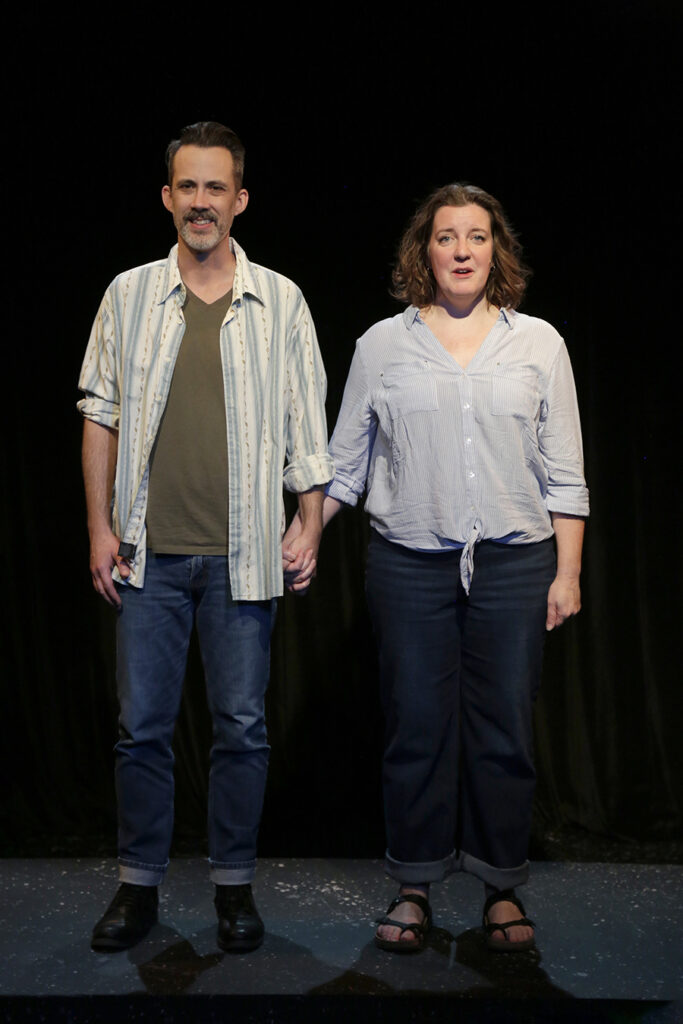
Albion Theatre presents “Lungs” Oct. 18 to Nov. 3, with performances Friday and Saturday at 8 p.m. and Sunday at 2 p.m. at the Kranzberg Black Box Theatre, 501 N. Grand Blvd., St. Louis, MO 63103. For more information, visit www.albiontheatrestl.org.

Lynn (Zipfel) Venhaus has had a continuous byline in St. Louis metro region publications since 1978. She writes features and news for Belleville News-Democrat and contributes to St. Louis magazine and other publications.
She is a Rotten Tomatoes-approved film critic, currently reviews films for Webster-Kirkwood Times and KTRS Radio, covers entertainment for PopLifeSTL.com and co-hosts podcast PopLifeSTL.com…Presents.
She is a member of Critics Choice Association, where she serves on the women’s and marketing committees; Alliance of Women Film Journalists; and on the board of the St. Louis Film Critics Association. She is a founding and board member of the St. Louis Theater Circle.
She is retired from teaching journalism/media as an adjunct college instructor.

